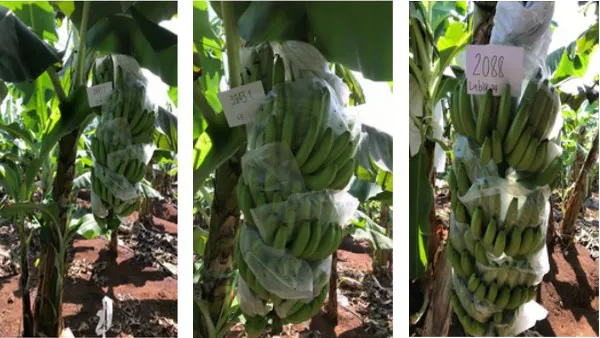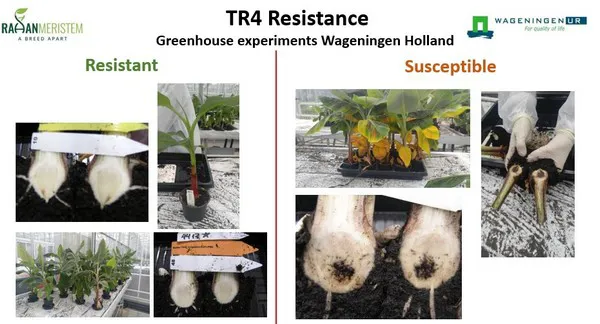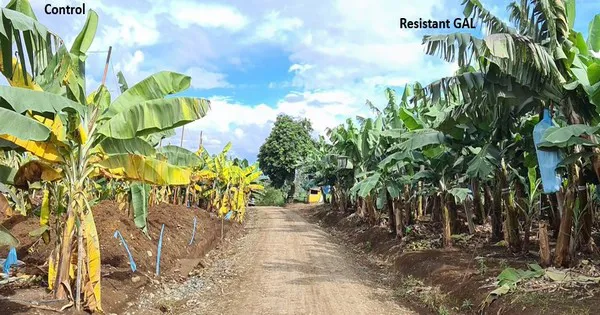A new Cavendish banana variety with complete TR4 Panama disease resistance is set to be made commercially available from early 2024. The Israel based company Rahan Meristem, with the aid of their Colombian partner Luis Alberto Restrepo, President of Banarica Colombia, have developed Cavendish banana plants with complete resistance to Panama disease TR4. Further improvements of the selected Cavendish cultivar shows an increase in banana fruit production, early flowering and improved plant architecture.

The new Cavendish banana variety with complete TR4 Panama disease resistance
After many years of scientific work and trials in Israel, the Netherlands and field trials in banana plantations in the Philippines they met their objective to save the popular Cavendish banana. The technology, does not entail genetic engineering.
Panama disease tropical race 4 (TR4) spreads quickly and causes serious damage to plants leading to significant losses for banana producers around the world. Up to now, limited banana cultivars with some resistance to TR4 have been released. The most effective strategy has been to put containment and biosecurity measures in place to stop the spread of the disease.
Ron Diner, CEO of Rahan stated: “TR4 strain of Panama disease is the primary focus of research in the banana industry. The fact that our technology can benefit the banana industry in a variety of ways is a positive step toward ultimate commercialisation. We are now working with our partners at Rahan to salvage the Cavendish banana.”

In order to develop the new Cavendish variety, Diner says it took more than seven years of scientific work that included field trials of the new variety, which showed it is completely resistant to Fusarium (TR4). Rahan started with random mutations in banana tissue culture plants in Israel. They then propagated a new line of over 10 000 Cavendish varieties. These varieties were then taken to greenhouse experiments at Wageningen University in the Netherlands and tested for TR4 susceptibility and resistance. Field experiments were done in the Philippines for the selected clones in infected fields. In 2022 the Fusarium resistant banana variety was tested, genomically sequenced and confirmed.

Test plots in Philippines showing the control (left) and new TR4 plantations (right)
“The best clones from the Philippines are already in Colombia under quarantine. They will be planted in TR4 infected areas in Colombia in 2023,” concludes Diner. Commercial availability is expected to follow in 2024.
For more information:
Niv Zecharia
Rahan Meristem
Tel: +972 4 9857100
Email: meristem@rahan.co.il
www.rahan.co.il
